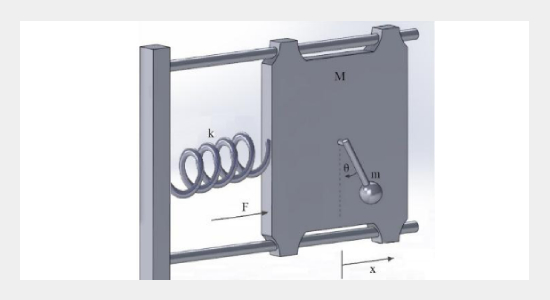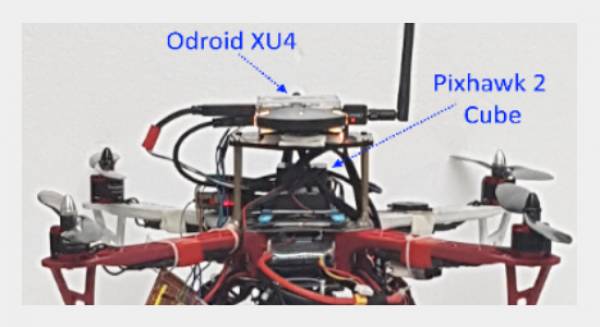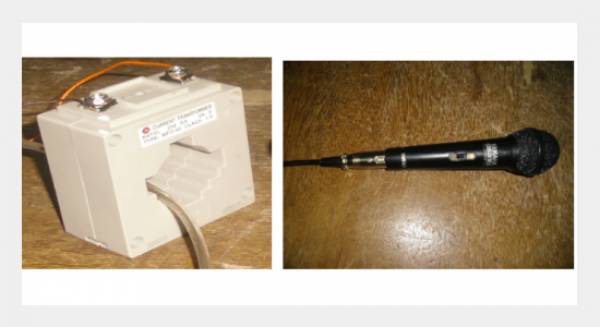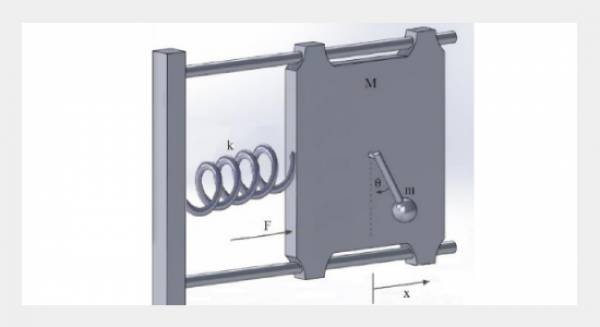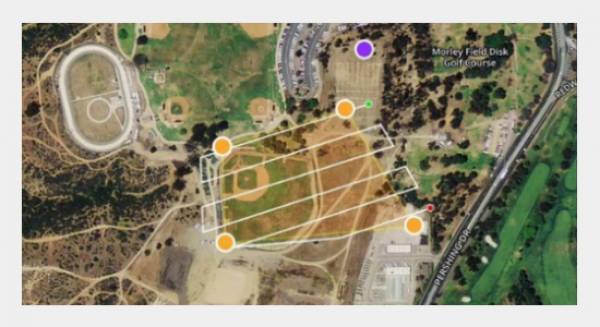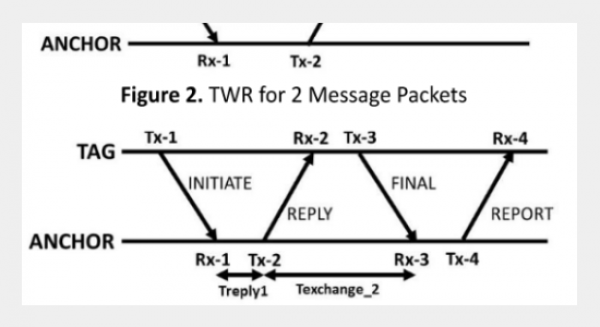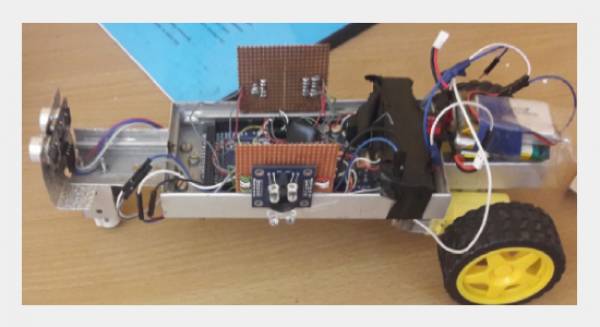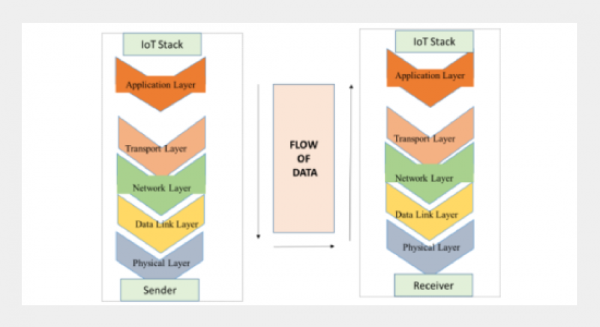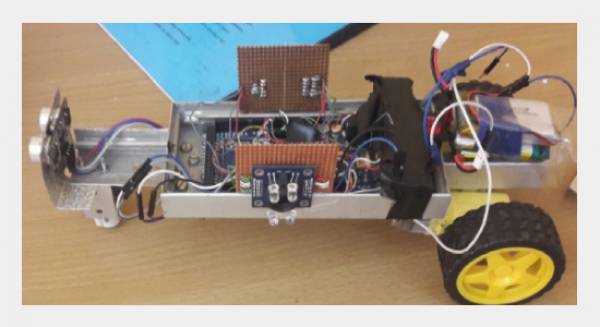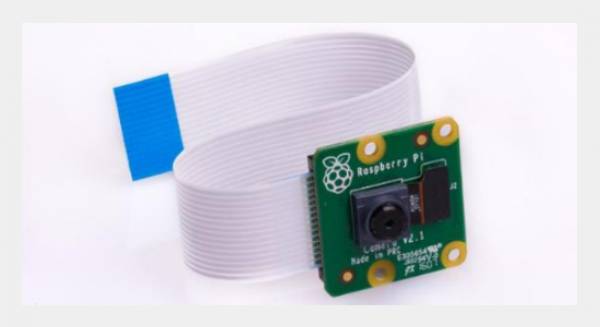Mahmoodabadi MJ1* and Reisi NA1 1Department of Mechanical Engineering, Sirjan University of Technology, Sirjan, Iran
Download Citation:
|
Download PDF
Nowadays, control and optimization of systems are two important and noticeable topics in all fields of science and engineering. One of the control methods, widely used because of its simplicity and accuracy, is the fuzzy control, which is based on the fuzzy logic theory. In the uncertainty conditions, this theory is able to formulate many inaccurate and vague implications, variables and systems in mathematical language, and provides requirements for reasoning, inference, control and decision making. This paper studies the stabilization of a Translation Oscillations with a Rotational Actuator (TORA) nonlinear fourth-order system by using a new fuzzy control technique which utilizes the small number of membership functions and rules. Besides, to determine the proper values for the controller parameters, the Imperialist Competitive Algorithm (ICA) is employed. Unlike the other optimization algorithms, ICA is not originated from evolutionary behavior of nature, but it is inspired by a human natural phenomenon called imperialism. In the optimization procedure, the objective function is defined as the sum of integrals of the rotor angle and the cart position. Finally, the comparison between the results obtained by the proposed strategy and some other researchers’ methods is provided, which shows the superiority of this work.ABSTRACT
Keywords:
Fuzzy Control; Optimal Control; Imperialist Competitive Algorithm; Fourth-order Nonlinear System; TORA.
Share this article with your colleagues
[1] Q. Quan, and K.Y. Cai, "Additive-state-decomposition-based tracking control for TORA benchmark," Journal of Sound and Vibration, vol. 332, no. 20, pp. 4829-4841, 2013. https://doi.org/10.1016/j.jsv.2013.04.033 [2] L.C. Hung, H.P. Lin, and H.Y. Chung, "Design of self-tuning fuzzy sliding mode control for TORA system," Expert Systems with Applications, vol. 32, no. 1, pp. 201-212, 2007. https://doi.org/10.1016/j.eswa.2005.11.008 [3] K. Tanaka, T. Taniguchi, and H. Wang, "Model-based fuzzy control of TORA system: fuzzy regulator and fuzzy observer design via LMIs that represent decay rate, disturbance rejection, robustness, optimality," IEEE World Congress on Computational Intelligence, pp. 313-318, 1998. https://doi.org/10.1109/FUZZY.1998.687504 [4] C. Hsieh, H. Yau, and C. Wang, "Control circuit design and chaos analysis in an ultrasonic machining system," Engineering Computations, Vol. 34 No. 7, pp. 2189-2211, 2017. https://doi.org/10.1108/EC-02-2017-0044 [5] L. A. Zadeh, "Fuzzy sets," Information and control, vol. 8, no. 3, pp. 338-358, 1965. https://doi.org/10.1016/S0019-9958(65)90241-X [6] S.K. Choy, S.Y. Lam, K.W. Yu, W.Y. Lee, and K.T. Leung, "Fuzzy model-based clustering and its application in image segmentation," Pattern Recognition, vol. 68, pp. 141-157, 2017. https://doi.org/10.1016/j.patcog.2017.03.009 [7] M. Javanbakht, and M.J. Mahmoodabadi, "Moving least square online predictive model for two degrees of freedom suspension system using optimal adaptive fuzzy controller," Modares Mechanical Engineering, vol. 18, no. 3, pp. 19-28, 2018. [8] A.K. Pani, and H.K. Mohanta, "Online monitoring of cement clinker quality using multivariate statistics and Takagi-Sugeno fuzzy-inference technique," Control Engineering Practice, vol. 57, pp. 1-17, 2016. https://doi.org/10.1016/j.conengprac.2016.08.011 [9] M.J. Mahmoodabadi, M.B. Salahshoor Mottaghi, and A. Mahmodinejad, "Optimum design of fuzzy controllers for nonlinear systems using multi-objective particle swarm optimization," Journal of Vibration and Control, vol. 22, no. 3, pp. 769-783, 2016. https://doi.org/10.1177/1077546314532116 [10] M.J. Mahmoodabadi, and N. Danesh, "Gravitational search algorithm based fuzzy control for a non-linear ball and beam system," Journal of Control and Decision, vol. 5, no. 3, pp. 229-240, 2018. https://doi.org/10.1080/23307706.2017.1403864 [11] D.S. Malik, S. Mathew, and J.N. Mordeson, "Fuzzy incidence graphs: Applications to human trafficking," Information Sciences, vol. 447, pp. 244-255, 2018. https://doi.org/10.1016/j.ins.2018.03.022 [12] T. Lu, and S.T. Liu, "Fuzzy nonlinear programming approach to the evaluation of manufacturing processes," Engineering Applications of Artificial Intelligence, vol. 72, pp. 183-189, 2018. https://doi.org/10.1016/j.engappai.2018.04.003 [13] R. Amirkhanzadeh, A. Khoei, and Kh. Hadidi, "A mixed-signal current-mode fuzzy logic controller," AEU-International Journal of Electronics and Communications, vol. 59, no. 3, 177-184, 2005. https://doi.org/10.1016/j.aeue.2004.11.019 [14] Y.L. Chen, J.W. Wang, Y.S. Lin, and J.H. Wen, "Combined fuzzy-based power control with window-based transmission rate management in multimedia CDMA cellular systems," AEU-International Journal of Electronics and Communications, vol. 65, no. 4, 377-383, 2011. https://doi.org/10.1016/j.aeue.2010.04.009 [15] I. S. Jesus, and R. S. Barbosa, "Smith-fuzzy fractional control of systems with time delay," AEU-International Journal of Electronics and Communications, vol. 78, 54-63, 2017. https://doi.org/10.1016/j.aeue.2017.05.014 [16] A. Kumar, and V. Kumar, "Hybridized ABC-GA optimized fractional order fuzzy pre-compensated FOPID control design for 2-DOF robot manipulator," AEU-International Journal of Electronics and Communications, vol. 79, 219-233, 2017. https://doi.org/10.1016/j.aeue.2017.06.008 [17] M.A. Márquez-Vera, L.E. Ramos-Velasco, and B.D. Balderrama-Hernández, "Stable fuzzy control and observer via LMIs in a fermentation process," Journal of Computational Science, vol. 27, pp. 192-198, 2018. https://doi.org/10.1016/j.jocs.2018.06.002 [18] X. Sheng, and X. Zhang, "Fuzzy adaptive hybrid impedance control for mirror milling system," Mechatronics, vol. 53, pp. 20-27, 2018. https://doi.org/10.1016/j.mechatronics.2018.05.008 [19] W. Shi, and B. Li, "Adaptive fuzzy control for feedback linearizable MIMO nonlinear systems with prescribed performance," Fuzzy Sets and Systems, vol. 344, pp. 70-89, 2018. https://doi.org/10.1016/j.fss.2017.09.001 [20] S. Feng, and H.N. Wu, "Robust adaptive fuzzy control for a class of nonlinear coupled ODE-beam systems with boundary uncertainty," Fuzzy Sets and Systems, vol. 344, pp. 27-50, 2018. https://doi.org/10.1016/j.fss.2017.07.002 [21] M.J. Mahmoodabadi, and H. Jahanshahi, "Multi-objective optimized fuzzy-PID controllers for fourth order nonlinear systems," Engineering Science and Technology, an International Journal, vol. 19, no. 2, pp. 1084-1098, 2016. https://doi.org/10.1016/j.jestch.2016.01.010 [22] C.T. Hsieh, H.T. Yau, C.C. Wang, and Y.S. Hsieh, "Particle swarm optimization used with proportional-derivative control to analyze nonlinear behavior in the atomic force microscope," Advances in Mechanical Engineering, vol. 8, no. 9, pp. 1-10, 2016.https://doi.org/10.1177/1687814016667271 [23] M.J. Mahmoodabadi, R. Abedzadeh Maafi, and M. Taherkhorsandi, "An optimal adaptive robust PID controller subject to fuzzy rules and sliding modes for MIMO uncertain chaotic systems," Applied Soft Computing, vol. 52, pp. 1191-1199, 2017. https://doi.org/10.1016/j.asoc.2016.09.007 [24] A. Farokhi, and M.J. Mahmoodabadi, "Optimal fuzzy inverse dynamics control of a parallelogram mechanism based on a new multi-objective PSO," Cogent Engineering, vol. 5, no. 1, pp. 1-20, 2018.https://doi.org/10.1080/23311916.2018.1443675 [25] M.J. Mahmoodabadi, and S. Arabani Mostaghim, "Stability of nonlinear systems using optimal fuzzy controllers and its simulation by Java programming," IEEE/CAA Journal of Automatica Sinica, vol. 6, no. 6, pp. 1-9, 2019. https://doi.org/10.1109/JAS.2017.7510388 [26] E. Atashpaz-Gargari, and C. Lucas, "Imperialist Competitive Algorithm: An algorithm for optimization inspired by imperialistic competition," IEEE Congress on Evolutionary Computation, pp. 4661-4667, 2007. https://doi.org/10.1109/CEC.2007.4425083 [27] L-X. Wang, "A Course in Fuzzy Systems and Control," Prentice Hall International Editions, 1997. ISBN-13: 978-0135408827 [28] R. L. Haupt, and S. E. Haupt, "Practical Genetic Algorithms," Second Edition, New Jersey: John Wiley & Sons, 2004. https://doi.org/10.1002/0471671746 ISBN-13: 978-0471455653 [29] M. Dorigo, and C. Blum, "Ant colony optimization theory: A survey," Theoretical Computer Science, vol. 344, no. 2-3, pp. 243-278, 2005.https://doi.org/10.1016/j.tcs.2005.05.020 [30] G. Xu, and G. Yu, "On convergence analysis of particle swarm optimization algorithm," Journal of Computational and Applied Mathematics, vol. 333, pp. 65-73, 2018.https://doi.org/10.1016/j.cam.2017.10.026 [31] D. Karaboga, and B. Akay, "A comparative study of artificial bee colony algorithm," Applied Mathematics and Computation, vol. 214, no. 1, pp. 108-132, 2009.https://doi.org/10.1016/j.amc.2009.03.090REFERENCES
ARTICLE INFORMATION
Received:
2019-04-27
Revised:
2019-10-20
Accepted:
2019-12-23
Available Online:
2021-07-01
Mahmoodabadi. M.J. and Reisi. N.A. (2021) Optimal design of a fuzzy controller based on the imperialist competitive algorithm for fourth-order nonlinear systems. Int. j. autom. smart technol. https://doi.org/10.5875/ausmt.v11i1.2161
Cite this article:
Copyright The Author(s). This is an open access article distributed under the terms of the Creative Commons Attribution License (CC BY 4.0), which permits unrestricted use, distribution, and reproduction in any medium, provided the original author and source are cited.


